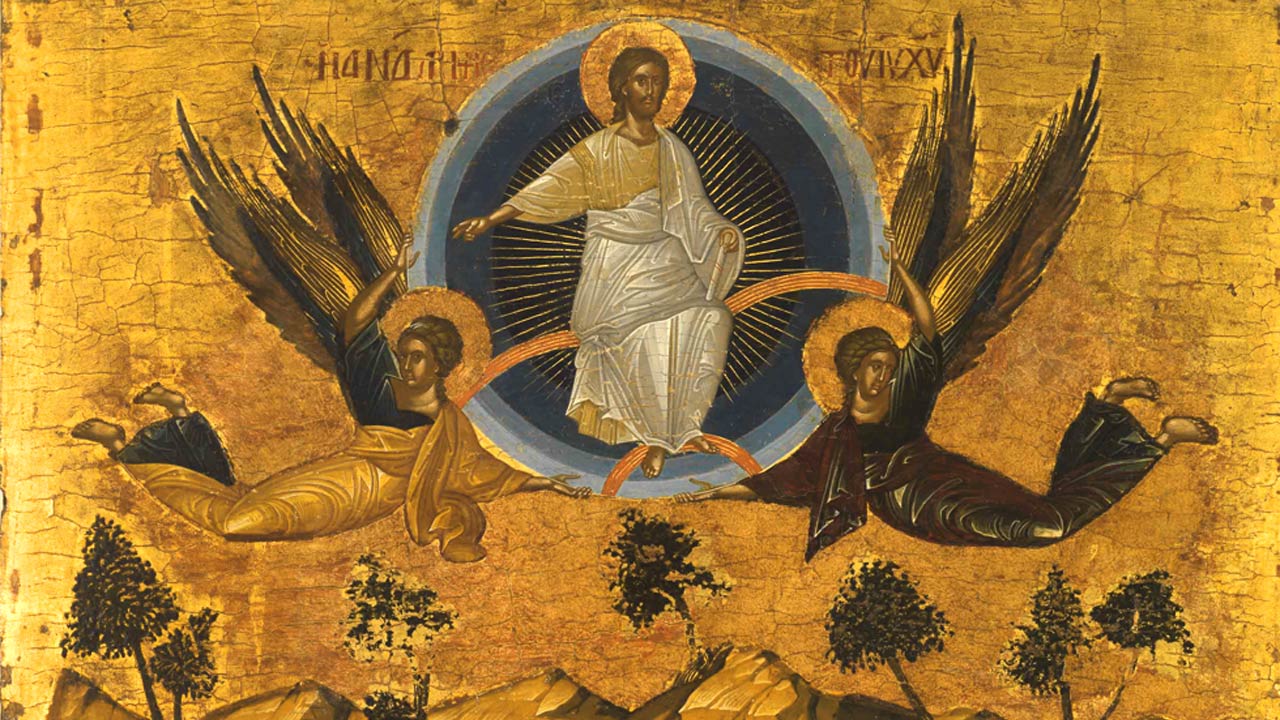
When Gustav Mahler composed his Third Symphony in the early 1900’s, he wanted to make it a vast hymn to God’s Creation. He built up its six movements in a hierarchy leading from inanimate matter, through plants, animals, human beings and angels, right up to God himself. Of this last part, he said: “I have called this movement ‘What loves tells me’, but I might have called it ‘What God tells me’, since for me God can only be conceived as love.” He made clear exactly what he meant by affixing to the beginning of the music, two lines of German poetry in which Jesus addressed his Father:
Father,
look upon these wounds of mine;
let not one of your creatures be lost to you.”
let not one of your creatures be lost to you.”
The image of love that this Jew turned Catholic chose to give, was that
of the Resurrected Jesus pleading for us before the judgement throne of God,
asking him to forgive our sins since he has died on our behalf, and has already
paid the price for them.
This image of Jesus the Advocate, whose blood, as the letter to the
Hebrews has it, pleads more insistently than Abel’s, is one which should be of
great comfort to us. We do not appear before God’s judgement in the hope of
being found “not guilty”; we are all sinners, and therefore guilty of the sins
of which the infallible judge convicts us. Our hope is entirely based on hope
of mercy, of forgiveness. In the words of one of the weekday Mass texts:
In love you
created man,
In justice you condemned him;
but in mercy you redeemed him.
In justice you condemned him;
but in mercy you redeemed him.
It is the hope of the Prodigal Son, who admits, in his conversion of
heart, “Father, I have sinned against heaven and against you; I no longer
deserve to be called your son.”
But God’s mercy knows no bounds; it is his love as it applies to us
sinners, and his love is boundless. “God loved the world so much, that he gave
his only, so that whoever believes in
him might not perish, but have everlasting life. For God sent his son into the
world, not to condemn the world, but so that through him the world might be
saved.” The Jesus who pleads for mercy on our behalf, was in the first place sent by the one who judges us.
But God does not leave us with one
advocate to plead our cause; in the words of Jesus in today’s Gospel, he promises
us another Advocate. Jesus must leave
us and return to his Father in heaven where he pleads our cause. And he sends
us that other Advocate, or as the Greek word has it, Paraclete, to be always with
us here on earth.
Think for a moment of all the roles an advocate has to play in the life
of the accused person he is representing. He knows the law, and argues the case
on behalf of his client. He advises his client on what to say and do, how to
behave. He even, when things look like they are going against his client, needs
to be a source of comfort.
And this is precisely what the Holy Spirit does as we wait for Jesus to
come again. The Spirit guides us both as individuals and as a Church. The
Spirit makes us aware of the salvation of Jesus at work in our lives, and the
presence of Jesus himself within us. The Spirit leads us to live as though our
lives depended upon it, and thus prepares us for our judgement. Amidst the
difficulties of life, when temptation to turn away from God is ever before us,
and when we sometimes have no hope of ever being able to escape the bonds of
sin. it is the Holy Spirit who comforts us and brings us new courage and
determination. Without the Holy Spirit to guide us as we wait for Jesus to
return, we might in fact not even be ready for him when he does return.
So it is that the Holy Spirit needs to be a major factor in the way we
live our lives. Even as Jesus prepared his disciples for his departure, he
prepared then for the coming of the Holy Spirit. As the Church has progressed
through the Easter season, you will have noticed how the theme of the coming of
the Spirit, leading up to the feast of Pentecost, has become more and more
prominent in the Scripture readings at Mass.
The Apostles spent the days that fill the gap between the Ascension and
Pentecost, waiting and preparing for the coming of the Spirit. These nine days
are the Church’s original novena, a
novena being a period of nine days of preparation and prayer. As we reflect on
all that Easter and the coming of the Spirit means to us, and we have seen that
it means a great deal, perhaps we need to spend a lot more time preparing for
this great event in our lives in Christ. There is, in fact, a special novena through
which we all can consecrate ourselves to the Holy Spirit and thus prepare
ourselves for his coming at Pentecost.
The Holy Spirit transformed the lives of the Apostles on that first
Pentecost day, turning them from a group of frightened men hiding away in the
Upper Room, into a band of fearless proclaimers of Jesus Christ, who spread the
Good News and renewed the face of the earth. If we really want him too, he will
transform our lives in the same way.


